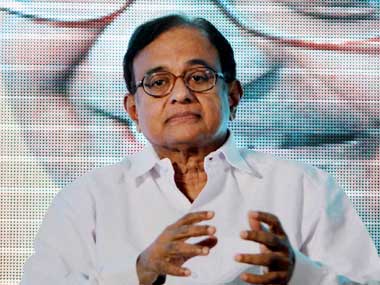After spending much of its second term in strenuous denial, and blustering its way through the election season, the UPA government is finally willing to make the big confession: Oops, we messed up! That seems to be the theme of Finance Minister P Chidambaram’s front-page interview with Indian Express editor Shekhar Gupta. “It is quite clear that the critical years were 2010 and 2011…Whatever will happen on 16th of May, I think, will be the direct product of those critical years – 2010 and 2011. Looking back it is quite clear that opportunities were missed, it is quite clear that crucial mistakes were made…,” Chidambaram said at the discussion to launch a book by Indian Express’s editor-in-chief Shekhar Gupta. So what was so special about those two years? For one, it marked the peak of the Lokpal movement, though Chidambaram doesn’t dare take its name. [caption id=“attachment_1501299” align=“alignleft” width=“380”]  Chidambaram has said the government failed to communicate efficiently. PTI image[/caption]
“It is quite clear that the critical years were 2010 and 2011…Whatever will happen on 16th of May, I think, will be the direct product of those critical years – 2010 and 2011. Looking back it is quite clear that opportunities were missed, it is quite clear that crucial mistakes were made and looking back it is quite clear that even the principal opposition party did not see the opportunity in 2010 or 2011. Those were the critical years,” he said.
For the finance minister, the fundamental change in the country was that it had become an “aspirational society” from a “petitioning society.” That’s a pretty big admission coming from a party that has built its entire brand around a dynastic sense of noblesse oblige. Chidambaram’s statement may be the first acknowledgement by him that the Congress completely lost the plot when it came to handling scandals like the 2G and Commonwealth scams and the resultant movement for a Lokpal Bill headed by Anna Hazare. Arvind Kejriwal, by forming his own party after the movement, may have attempted to make the most of it but as Chidambaram said, it will be only known on 16 May whether he did it well enough to make a mark. But if it was just about scams, why are former UPA allies like DMK, whose minister was implicated in the 2G scam, hoping to do well in this election? Is it deeper than just the Lokpal movement? Chidambaram will not place the blame at his doorstep but it isn’t just the scams that are likely to cost the UPA dearly. The UPA’s handling of the economy, which saw growth plummet from never before seen highs, is as antagonising to the ‘aspirational’ India that had emerged during the period of high growth. It’s also the biggest poll plank for the BJP and its prime ministerial candidate. But blaming 2010-11 as the years of change, Chidambaram may have also laid the blame for this on his predecessor, Pranab Mukherjee when he hints at the cupidity of UPA 2’s single-minded focus on rural populist schemes like NREGA:
“That treating the people of India as petitioners we should give up…Nobody is any longer resigned to their fate,” he said. Chidambaram also pointed out that UPA-2 should have drawn lessons from the fact that it was not the poorer constituencies but the more affluent constituencies that voted it back to power in 2009.
What makes Chidambaram’s remarks all the more striking is the contrast it offers to Rural Development Minister Jairam Ramesh’s blunt statement to Firstpost: “There should be no doubt about Congress party’s left-of-the-centre positioning.This should be very clear.” Turns out it isn’t all that clear at all.


)
)
)
)
)
)
)
)
)



